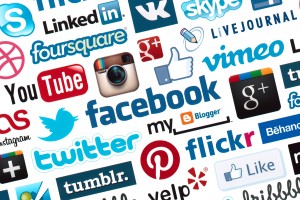Years ago, I followed health guru Andrew Weill’s advice and took a “news fast.” I stopped reading newspapers and news web sites for six weeks. I found myself calmer during that period, and spending more time both working and enjoying myself. I read more books, I wrote more, I relaxed more.
Lately I’ve seen talk about “digital diets” or fasts: taking time to unhook completely from our constant connectedness. I get that. I actually returned my Android phone six months after I bought it and went back to a pre-smart phone. I had found myself more obsessed with email than usual, checking it at doctors’ offices, on line at the post office, even when I was in my car stopped at red lights or train crossings. I decided I need more free time away from work, and the phone was just too tempting.
But going cold turkey, for even a week? I just can’t. It doesn’t make sense from a business standpoint. Like most authors, my professional life is digital.
If my publisher or my editor contacts me, it’s via email. If an editor wants me to write a story or essay for a new anthology, that’s how I heard. Ditto with other authors or anyone who’s found my email address via my web site and wants to write me fan mail or invite me to speak at a conference, a university, a library or any of the many other venues where I do talks and readings from my work.
I’ve done entire book tours here and abroad without ever needing the phone. In fact, the only time I’m on the phone for business is firming up details that have already been set up via email, and that’s infrequently. And when I am connecting via phone, I’m often simultaneously checking details on line, or even emailing something to whoever’s called me.
Now that I’m also a visiting assistant professor at Michigan State University, a digital fast makes even less sense. I need to stay in touch with my students and also with other faculty members. That’s become specially important as I continue to work on the planning for a study abroad program I’m co-leading in London this summer. Emails to various people and institutions in London have been legion.
The place where I can cut back, though, is Facebook. I think I can live without cute cat videos for a week. Who knows, maybe even six weeks…..
Image courtesy of Stuart Miles / FreeDigitalPhotos.net

